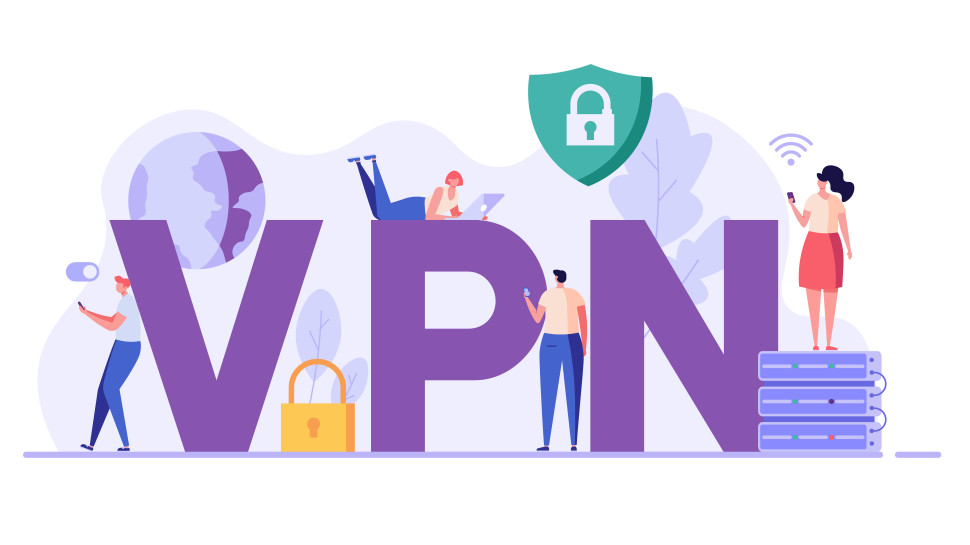6 cybersecurity predictions to look out for in 2023
What's in store for the security software industry?

Approaching the final days of 2022, it's time to draw some conclusions on the past 365 days and take a look at what 2023 will bring to the security software industry. During the last 12 months trends have been growing, while showcasing a glance of what the future of cybersecurity might be.
The use of the VPN services grew exponentially as a defence weapon among everyday users in a worldwide period of unrest and warfare. From the war in Ukraine to anti-government protests in Iran and the Tigray conflict, citizens are turning to the best VPN providers more and more in order to bypass internet restrictions and protect their online anonymity.
At the same time, remote work continues to grow more and more into the norm for many organizations. This is opening up new security challenges that many sectors often struggle to keep up with.
Cybercriminals are also getting smarter and smarter, making a multifaceted defence strategy against malware a real necessity for both everyday users and organisations.
Below, we dive into our top 6 cybersecurity predictions to look out for in 2023.
1. Push towards sustainability
With issues related to climate change on the rise and an energy crisis crippling many worldwide countries especially in Europe, a stronger turn against sustainable policies is something that will span across any type of business in 2023. The cybersecurity sector isn't exempt from this.
"By 2025, data centers will consume > 3% of the world's electricity and storage can make up anywhere from 10-30% of a data center's overall energy consumption," explained Folio Photonics CEO Steve Santamaria. "This will create an industry-wide push toward sustainable storage technologies that are more energy-efficient than legacy hardware."
Sign up to the TechRadar Pro newsletter to get all the top news, opinion, features and guidance your business needs to succeed!
This trend is also reinforced by the fact that the great majority of consumers (over 80%) have said to be more likely to support businesses with strong social and environmental practices in place.
2. Cloud-based solutions on the rise
"Freedom and flexibility will become the mantra of virtually every data management professional in the coming year," said Retrospect Vice President of Engineering Brian Dunagan.
As mentioned before, with more and more people working from home, cloud computing has become the core of most workplace infrastructure. This means that there's a new push to minimize the security risks of this type of environment.
At the same time, some experts are also expressing the need for the current cloud networking market to improve itself to successfully react to new cyber threats that remote and hybrid work has brought. That's why new mesh VPN solutions, like the one offered by Netmaker, are trying to fix the industry.

3. VPNs losing popularity among IT professional
While a growing number of everyday users have been downloading secure VPN services over the last year, businesses are expected to switch towards other types of security software within the next 12 months.
"VPNs will slip in popularity as there is now a viable solution that can help IT professionals to overcome its inherent challenges," said DH2i CEO and Co-Founder Don Boxley.
Boxley predicts that in 2023 software-defined perimeter (SDP) will replace VPNs as the dominant technology for securely connecting different remote users and devices. This enforces the growing trend of IT companies that react to a surge in business VPN-based attacks by seeking for alternatives.
4. Ransomware to remain a growing threat worldwide
There was an 82% increase in ransomware-related data leaks, the CrowdStrike 2022 Global Threat Report revealed. At the same time, 4,100 publicly disclosed data breaches occurred in 2022 with Twitter, Revolut, and Uber being just some of the most famous organisations to be targeted. And such a trend isn't showing any sign of stopping anytime soon. Quite the opposite, actually.
As Surya Varanasi, chief technology officer at StorCentric, explained: "For this reason, channel solutions providers and end users will prioritize data storage solutions that can deliver the most reliable, real-world proven protection and security."
This means that extra security features like lockdown mode, file fingerprinting, private blockchain and robust data verification algorithms, will then pass from being "a nice-to-have to must-have."

5. Mobile attacks to keep growing
We already mentioned that malware attacks are on the rise. Likewise, the time that all of us spend on our smartphones is growing too. Verizon's report actually calculated that mobile devices have access to 53% more sensitive data than a year ago. It goes without saying that smartphones are increasingly becoming the main target of cybercriminals.
That's actually reflected with the providers behind some of the best antivirus software shaping their offer to provide protection from several different fronts and devices. Same goes across VPN companies as they increasingly integrate their services with malware protection features into their mobile VPN apps.
Experts also urge users to take additional steps like multi-authentication practices to securely login into personal accounts or downloading password manager software to secure their login details. It's also essential to learn how to recognize the signs that a phone has been hacked and act accordingly.
6. A big year for data privacy regulations
Finally, in 2022 we have seen a growing number of countries across the world trying to regulate the open internet. And while excessive government interference might threaten online freedom as we know it, better data privacy policies are a necessity to minimize the information collected and shared about all of us.
The next year is indeed set to kick off with new developments on that front, with both India's Personal Data Protection Bill and the ADPPA in the US to be further discussed in January.

Chiara is a multimedia journalist committed to covering stories to help promote the rights and denounce the abuses of the digital side of life – wherever cybersecurity, markets, and politics tangle up. She believes an open, uncensored, and private internet is a basic human need and wants to use her knowledge of VPNs to help readers take back control. She writes news, interviews, and analysis on data privacy, online censorship, digital rights, tech policies, and security software, with a special focus on VPNs, for TechRadar and TechRadar Pro. Got a story, tip-off, or something tech-interesting to say? Reach out to chiara.castro@futurenet.com